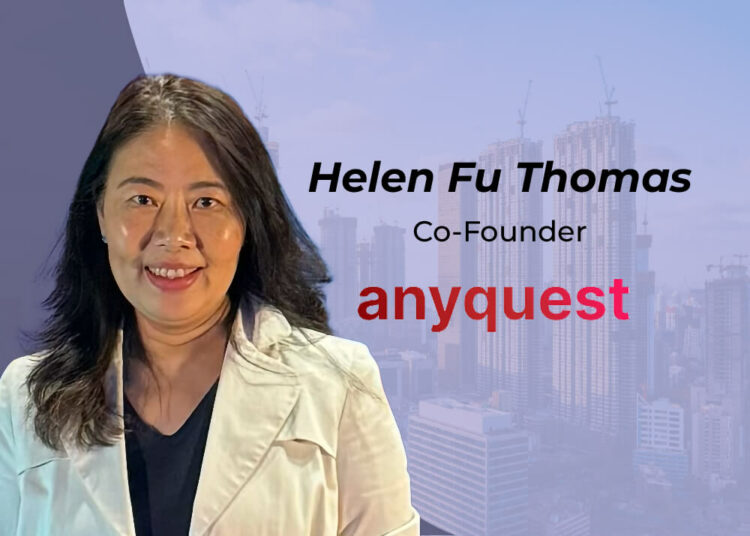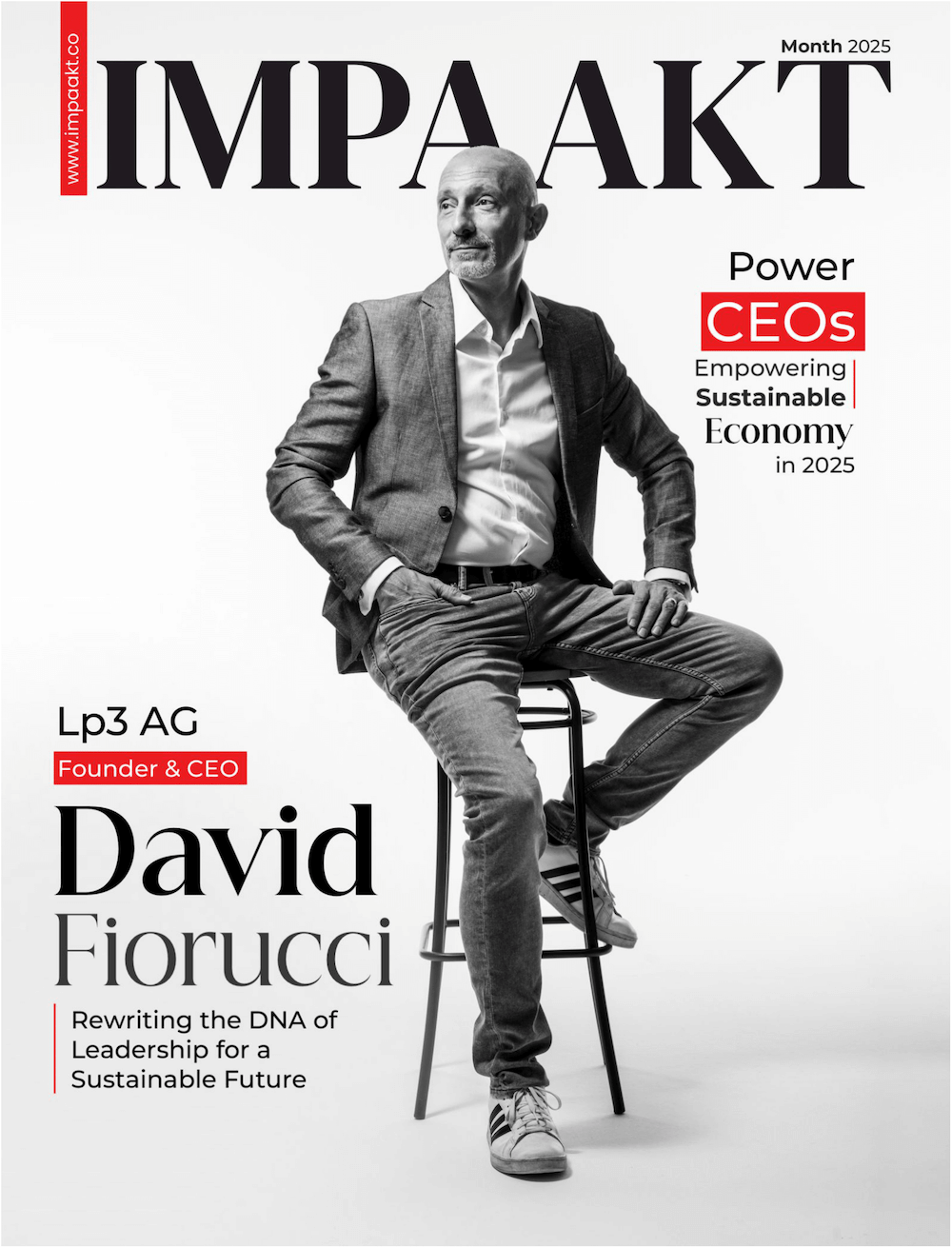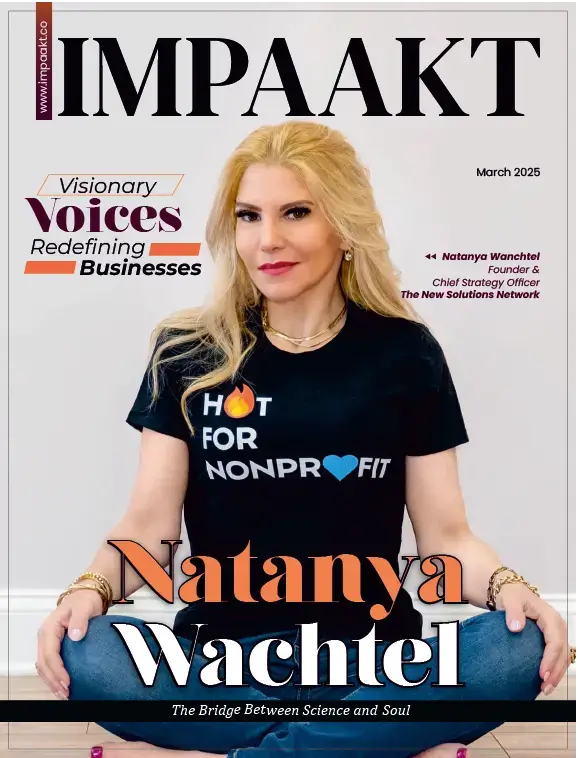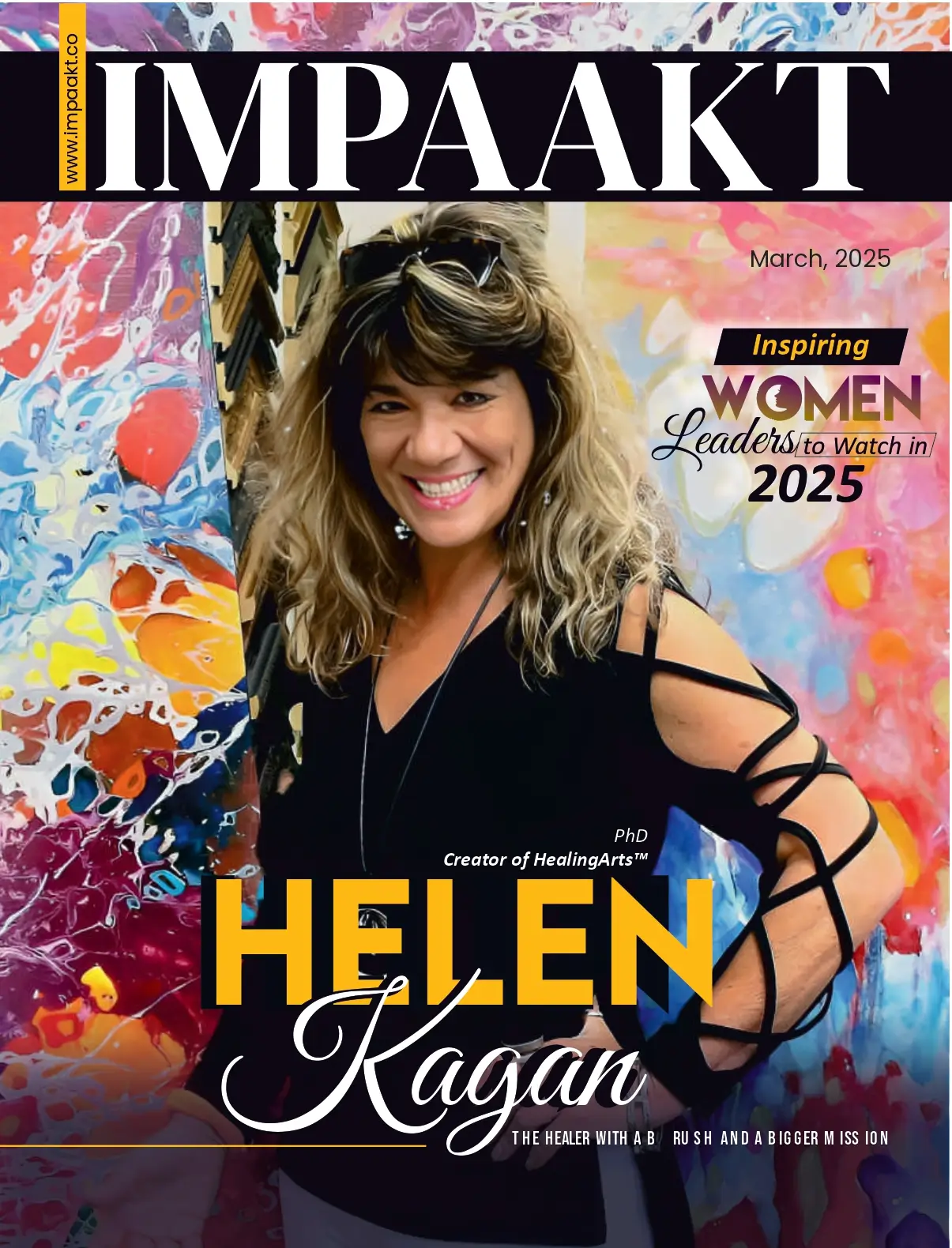The world of technology is full of amazing ideas, but often lacks diversity in the people who bring them to life. Studies by Deloitte show a staggering 71% of people in tech believe adding women to AI and machine learning will bring fresh perspectives that the industry desperately needs. This lack of diversity can even hold back the technology itself, with 66% saying AI solutions would benefit from a more diverse workforce.
That’s where Helen Fu Thomas, the Co-founder of AnyQuest comes in. She’s not just another tech entrepreneur – she’s a role model for anyone who wants to break into this exciting field and a living example of the positive impact women can have on AI. Her story is a powerful message: AI isn’t just for a select few, and the industry thrives when everyone has a chance to contribute.
We at IMPAAKT got into conversation with her to gain insights into her journey and how she is democratizing AI, making its power accessible to businesses of all sizes.
Let’s dive deep into it.
A Passion Ignited
Helen’s fascination with technology began at a young age, a curiosity that blossomed into a clear vision for her future. Armed with an MBA from the prestigious UC Berkeley Haas School of Business, she embarked on a remarkable career path. Her early years were spent honing her skills in the dynamic world of Silicon Valley, where she held prominent positions at companies like LeapFrog, an EdTech pioneer. This experience instilled in her a deep understanding of the transformative potential of technology, particularly in the educational realm.
However, Helen’s ambitions extended beyond the confines of the classroom. She craved a space where she could leverage the power of AI to create a broader impact. This yearning led her to DMAI, a global AI powerhouse. There, she flourished as the CEO, spearheading the development of groundbreaking cognitive AI technologies. Her leadership resulted in the creation of innovative products like the Animal Island Learning Adventure (AILA) Preschool Learning System, which garnered international recognition and exemplified the potential of AI to revolutionize the educational experience.
The success of AILA further solidified Helen’s commitment to the ethical and responsible application of AI. She saw it not as a replacement for human ingenuity, but rather as a powerful tool for amplifying human potential and fostering positive social change.
Building AnyQuest
In July 2023, Helen, along with her co-founder Dmitri Tcherevik, embarked on a defining chapter in her career with the launch of AnyQuest. This venture marked a significant milestone, not just for her professional journey, but also for the democratization of AI as a whole. AnyQuest’s core mission is to make AI accessible, empowering businesses of all sizes to leverage its transformative power.
The Power of No-Code Solutions
What truly sets AnyQuest apart is its commitment to user-friendliness. Unlike many AI platforms that require extensive coding expertise, AnyQuest boasts a revolutionary no-code approach. This means that even knowledge workers with limited technical backgrounds can harness the power of AI to create and implement cognitive applications for their businesses. This democratization of AI development represents a significant shift in the landscape, opening doors for a wider range of individuals and organizations to participate in the AI revolution.
Beyond User-Friendly
AnyQuest goes beyond just no-code solutions. It offers a comprehensive platform that caters to the complex needs of enterprises. Its powerful middleware capabilities ensure seamless integration, deployment, and management of AI applications within an organization’s existing infrastructure. This ensures scalability and interoperability, allowing businesses to leverage AI across various departments and workflows.
Making AI Affordable
AnyQuest’s transparent and cost-effective pricing model further emphasizes its commitment to inclusivity. In stark contrast to the often-prohibitive costs associated with traditional AI solutions, AnyQuest offers its platform at an accessible price point, making it a viable option not just for large corporations, but also for smaller businesses and startups. This ensures that even organizations with limited resources can be at the forefront of AI adoption.
Building Trust in AI
In a world increasingly concerned about data security and privacy, AnyQuest prioritizes these aspects as core principles. Their robust platform incorporates stringent security measures, ensuring that data remains secure and compliant with regulations. Furthermore, AnyQuest prioritizes reliability and functionality, providing users with a platform that they can trust to deliver consistent and accurate results.
A Voice for Women in AI
Helen’s impact extends far beyond the realm of technology. As a woman navigating a field traditionally dominated by men, she is a powerful advocate for diversity and inclusion within the AI community. She recognizes the importance of fostering a culture that embraces different perspectives and backgrounds. Such diversity is not just essential for creating responsible and unbiased AI applications, but also for fostering a more innovative and dynamic AI ecosystem.
Inspiring the Next Generation of Women in AI
Helen’s journey serves as a beacon of hope and inspiration for aspiring women in AI. By shattering the glass ceiling and co-founding a leading enterprise AI company, she demonstrates that success in this field is not a gender-specific pursuit. Her unwavering determination and advocacy are actively dismantling the myth that AI is an exclusive domain. Through her work, Helen encourages women to be open-minded, persistent, and pursue their dreams of making a difference in AI.
AI is the Future
When we asked Helen what future trends in AI she anticipates, and how AnyQuest is preparing for them, she said, “AI is everywhere in all forms, from smartphones to AI computers that Microsoft is putting out, as well as all kinds of chatbots, AI assistants, and automation agents. Sooner or later, if you are not leveraging AI as your sidekick, copilot, and assistant, you’ll be at a disadvantage because those leveraging AI will be able to do more with less.”
She added, “AnyQuest is well-positioned and focused on enterprise generative AI deployment. As I mentioned, AnyQuest’s unique combination of open-source no-code development tools, enterprise middleware solutions, user-friendly platform, ecosystem collaboration, and focus on integration, security, and control sets it apart in the Generative AI landscape. These factors collectively make AI more accessible, usable, and impactful for individuals and organizations seeking to leverage AI technology for innovation and growth.”
Humans and AI Working Together
Looking towards the future, Helen envisions a world where AI and humans work in tandem, not in competition. She believes that AI should not replace human capabilities, but rather augment them, allowing individuals to achieve greater efficiency and productivity. This collaborative approach is central to her vision for AnyQuest, where AI serves as a powerful tool to empower knowledge workers, not replace them.
Shaping a Responsible AI Landscape
Helen recognizes the importance of responsible AI development. She emphasizes the need for ethical considerations and strong governance structures to ensure that AI systems are unbiased, transparent, and accountable. By prioritizing these aspects, we can build trust in AI and ensure that it serves humanity for the greater good.
The Next Decade of AI
The next decade promises to be a period of exponential growth for AI. Helen anticipates several key trends that will shape the future of this transformative technology. These include:
- Ubiquitous AI: AI will become increasingly pervasive, seamlessly integrated into various aspects of our lives, from personalized recommendations and virtual assistants to autonomous vehicles and smart cities.
- Democratization of AI: The barriers to entry will continue to lower, making AI development tools and platforms more accessible to individuals and organizations with varying levels of technical expertise.
- AI Ethics and Regulation: As AI becomes more widespread, the need for ethical considerations and regulations will become paramount. Emphasis will be placed on mitigating bias in algorithms, ensuring data privacy, and developing responsible deployment practices.
- AI Augmentation: The focus will shift towards AI augmentation, where human and AI capabilities are combined to achieve optimal results. Collaborative AI systems will work alongside humans to enhance decision-making, creativity, and overall productivity.
- AI’s Impact on Various Sectors: From revolutionizing healthcare with personalized medicine and disease prediction to optimizing resource management and environmental sustainability, AI’s influence will be felt across every facet of society.
- AI in Education: AI-powered tools will personalize learning experiences, provide adaptive tutoring, and enhance student engagement, leading to a more effective and engaging educational system.
- AI Governance and Accountability: Organizations and governments will need to implement robust AI governance structures to ensure transparency, fairness, and accountability in AI systems.
A Call to Action: Embracing the Future of AI
Helen’s concluding message is a call to action for all. She urges individuals and organizations to embrace the transformative potential of AI. By actively engaging with this technology, learning its capabilities, and advocating for responsible development, we can all play a vital role in shaping a future where AI serves as a force for good, fostering positive change and progress across the globe.
In closing, Helen’s story is one of remarkable resilience, unwavering dedication, and a deep commitment to inclusivity. Her journey in AI is an inspiring testament to the power of human ingenuity and serves as a reminder that the future of AI is not predetermined. Through her leadership and vision, Helen is actively shaping a future where AI empowers individuals, fosters innovation, and serves as a catalyst for positive change in the world.











